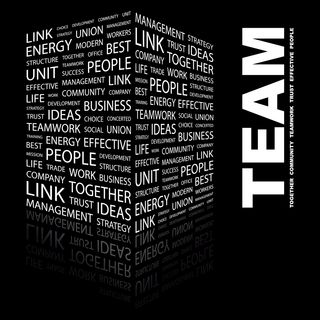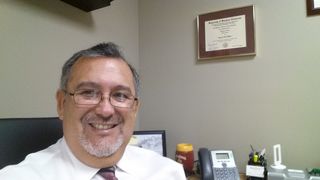This is the final post of a four-part series outlining the five key roles to a thriving, purposeful law practice: entrepreneur & visionary [Part One], transformer [Part Two], performer [Part Three], and leader. Today, we will distinguish the significance of the final role, the leader(s). We have established that the entrepreneur, visionary, transformer and performer are all needed to create a successful business, yet it is this final role, that of leaders, that can make a successful company exponentially more successful. Leaders take the ideas of value identified by the entrepreneur and the vision of the visionary to turn those ideas into achievements. Leaders work with the skills of the transformer, who transforms the idea and vision into something tangible that can be delivered by the performer to consumers to derive the intended benefit. Leaders expand the capability of these four key roles beyond that of the individuals who are performing them.
 It is critical in any organization to have leaders, but there are different types of leaders. In smaller organizations, each of us must be self-led. Most small businesses (or law firms) actually start with one individual, the entrepreneur (or frustrated technician, as Michael Gerber declares in E-Myth). But as the sole person in the company, the entrepreneur is also required to be the visionary, the transformer, and the performer, or face almost certain failure. By default, they naturally become the leader of themselves. As the company grows, they hire their first employee, typically a performer to take some of the “performer” role off of them, and the company continues to grow. Eventually, enough employees are hired so each role is handled by separate individuals. This increases the capacity of the business, but requires each of the employees to communicate effectively and work “together” to achieve the intended result. Being self-led is essential to an individualʼs personal success, but successful organizations need two types of leading – self-led individuals and those who lead others.
It is critical in any organization to have leaders, but there are different types of leaders. In smaller organizations, each of us must be self-led. Most small businesses (or law firms) actually start with one individual, the entrepreneur (or frustrated technician, as Michael Gerber declares in E-Myth). But as the sole person in the company, the entrepreneur is also required to be the visionary, the transformer, and the performer, or face almost certain failure. By default, they naturally become the leader of themselves. As the company grows, they hire their first employee, typically a performer to take some of the “performer” role off of them, and the company continues to grow. Eventually, enough employees are hired so each role is handled by separate individuals. This increases the capacity of the business, but requires each of the employees to communicate effectively and work “together” to achieve the intended result. Being self-led is essential to an individualʼs personal success, but successful organizations need two types of leading – self-led individuals and those who lead others.
A leader is one who is accountable to those they report to for the performance of others who are accountable to them to accomplish the stated objective or goals. In smaller companies, all employees are accountable to one leader who is typically the owner (entrepreneur); he or she is not always the person best suited to lead the organization, but often the role is “delegated up” by default. Even if the entrepreneur is capable of leading, they soon discover their talents are better utilized on “higher impact” matters. As the number of people in a company increases, the true test of the business's viability is determined. Leaders become essential to ensure that the multiple roles continue to work together to achieve the outcome anticipated by the owner, envisioned by the visionary, created by the transformer, and delivered by the performer. As the entrepreneur is “freed up” from these other roles, they are able to pursue other opportunities for the company.
The typical structure of leaders in a successful company or law firm is, first, the leader of a role. For example, this might be a performer who leads client services, drafting, funding, or even the attorney. Each must lead themselves in their individual role. When a certain role has multiple performers (i.e. several client service personnel), then the company needs a leader of the performers in each role (a.k.a department). That is typically referred to as a department head, or in Lawyers with Purpose, a “coordinator.” A client services coordinator, funding coordinator, drafting coordinator or the like are examples.
The next level of leader is a leader of department heads. A leader of those who lead the individual departments leads the company and coordinates all departments to ensure the intended success is achieved. The leader of departments is typically referred to as the director of operations (a.k.a D.O.). They coordinate all the different departments that are coordinating all the different performers within those departments. Additional leaders to successful companies include the leader of the future, who is otherwise known as the visionary, and the leader of the business, who is the entrepreneur. Finally, it is the role of the CEO (often the entrepreneur) to lead the director of operations and the visionary to ensure that the business remains relevant, viable and thriving.
In each of these roles, the individuals must be self-led. So the critical question is, is a leader also a performer, a transformer, a visionary or an entrepreneur? Obviously, the answer is yes. In each role of an organization, each can have multiple roles. For example, the leader of client services can transform the way the company delivers client services to the consumer to ensure they derive the intended benefits more efficiently. The distinction between the client service role and a transformer client service role is the impact of creating new ways to deliver the role. The same could be said of those in the marketing department, lawyers, or those in other critical roles in a small law firm. Once an individual is clear on their most effective role, it enables them to provide the greatest value to their organization. In fact, it is essential to identify what we do naturally and embrace it!
The next logical question is, I know my role, but am I stuck there? I would much rather restate it from the perspective that, once you identify what role you belong in, you should celebrate it because it provides you the greatest opportunity to thrive and have impact in the organization and affect its ability to perform successfully. To have a thriving, purposeful practice you need an entrepreneur to identify the value needed in the marketplace. You need the visionary to identify how to deliver the value to the marketplace. You need the transformer to transform the ideas and visions into something that can actually be deliverable to the individual and you need the performer to actually be able to deliver it in a way for the consumer to derive the benefit. And, as your organization grows, you need leaders at every level and in each role to continue to expand the reach of impact that your company can have.
So it's not a question of being “stuck,” it's a question of “celebrating” your unique skill that creates the greatest value inside a successful organization. At Lawyers with Purpose, we empower each team member to embrace their role and set the standards to interact with the other roles with the necessary reporting for the leaders to lead effectively. As a result, our members experience thriving, purpose-driven law practices.
If you aren't a Lawyers With Purpose member and want to know more about creating a purpose-driven practice, join our webinar Thursday, July 23rd at 2 EST "Having The Time To Have It All" to learn more about joining. Mark your calendar and register today to reserve your spot.
David J. Zumpano, Esq, CPA, Co-founder Lawyers With Purpose, Founder and Senior Partner of Estate Planning Law Center










